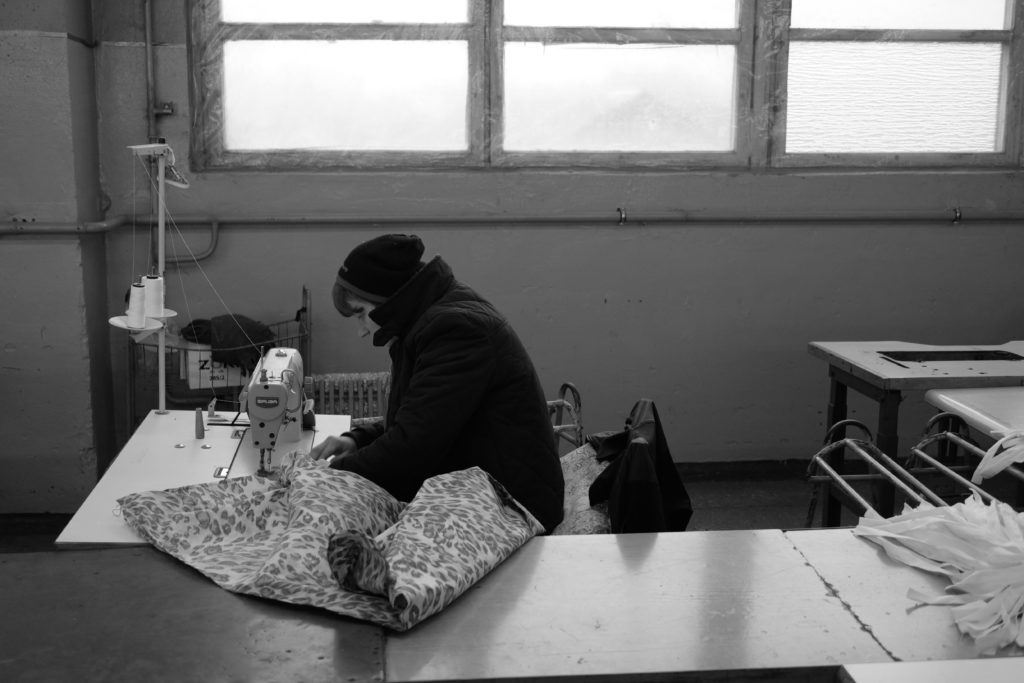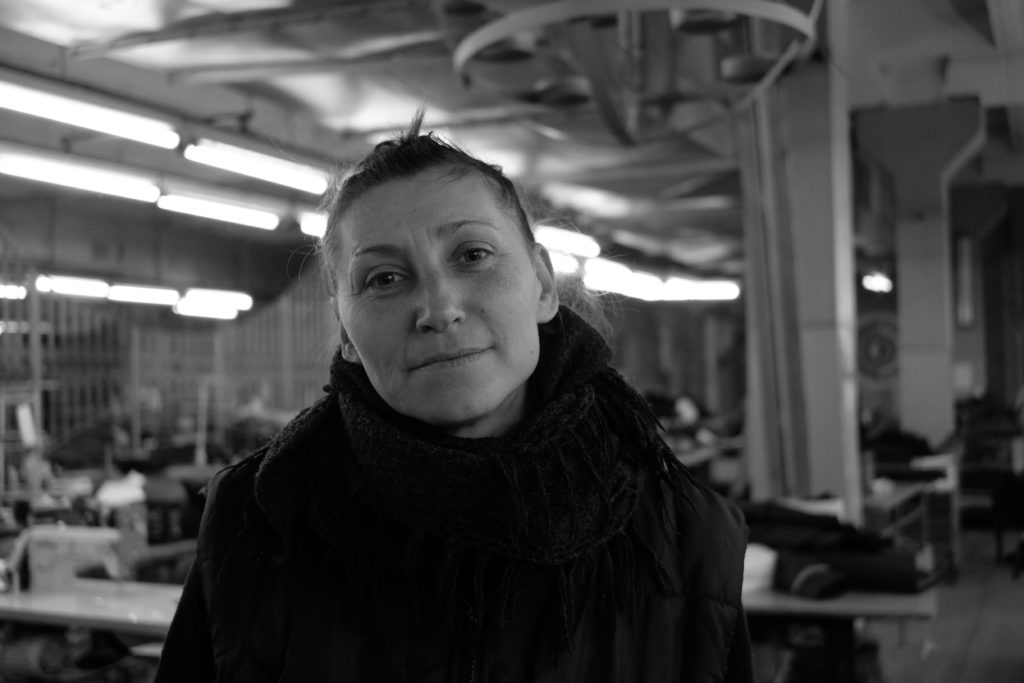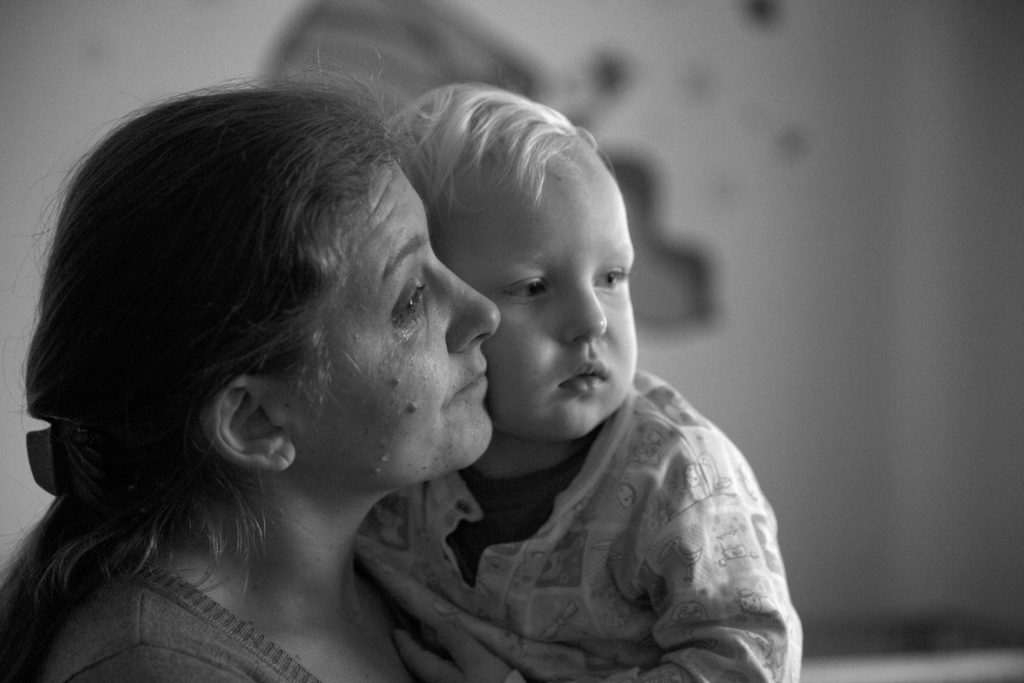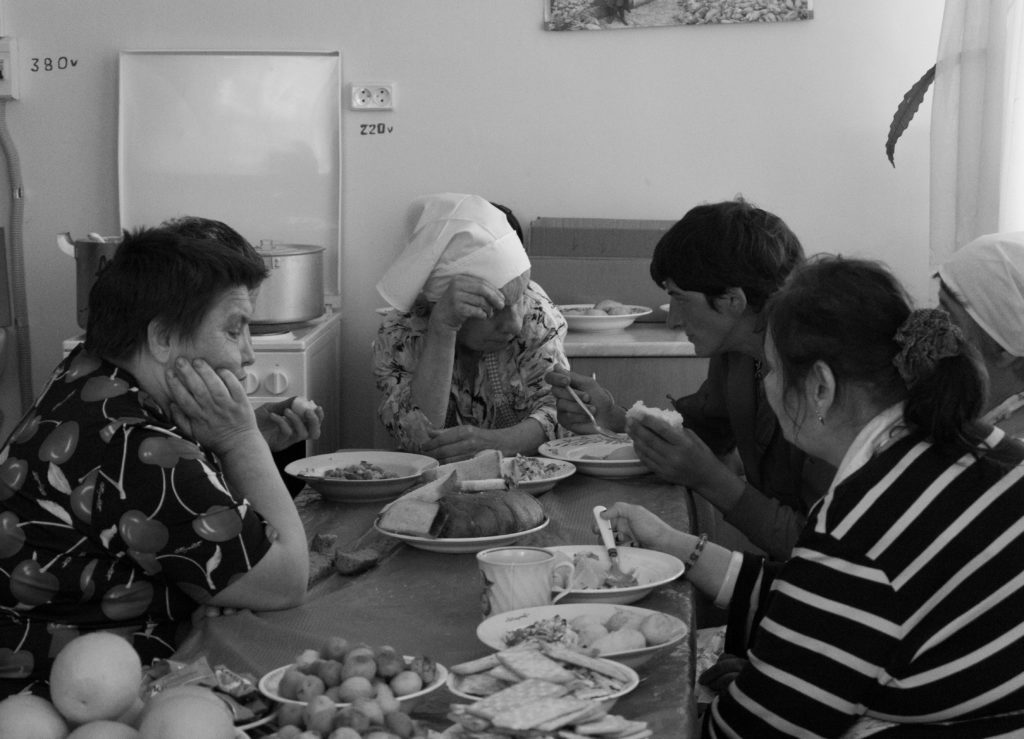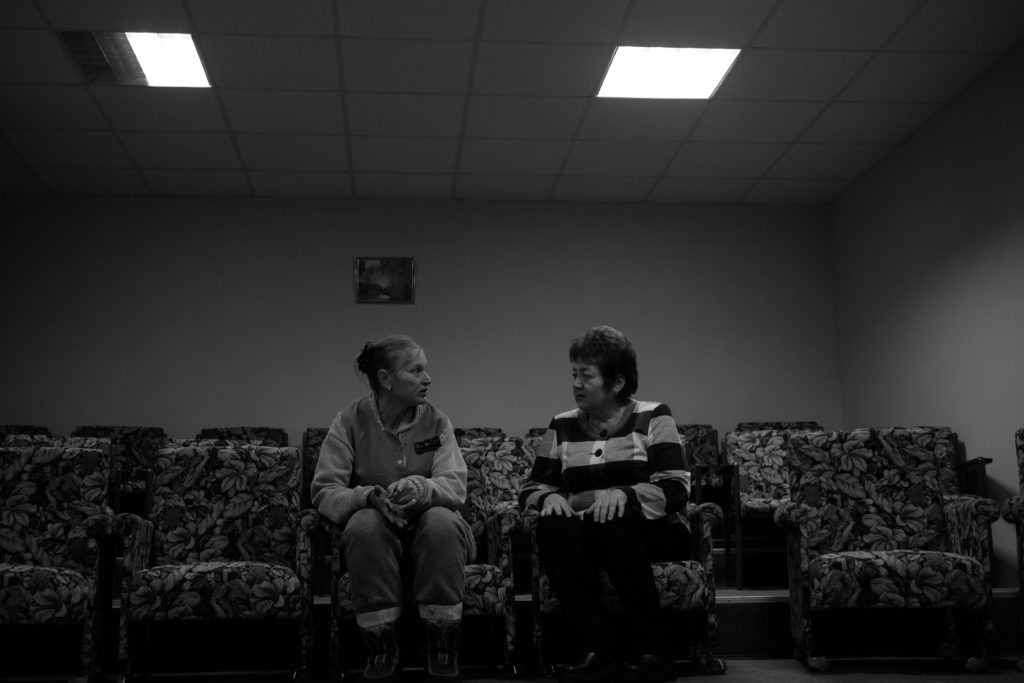Just Like You is a joint project of Real Stories Production and the United Nations Development Programme in Ukraine financially supported by the Ministry of Foreign Affairs of Denmark
TO SEE
THE FRIGHTENED EYES
Alla Lepekha — Regional Coordinator for the Ukrainian Parliament Commissioner for Human Rights
There are many detention facilities in Ukraine. These are places where people are sent to, as a rule, at the discretion of government bodies, and from which they cannot get out on their own. It’s not just prisons or detention centers as one might think. These are also centers for migrants, psychiatric hospitals, geriatric boarding houses. My job is to go and see what conditions people live in, and how well their rights are respected. It pains me when I come and see the frightened eyes of the people. They are too afraid to tell anything and prefer to hide, or just to keep quiet. This is very unfortunate, but when they do begin to trust, facts emerge that would not be possible to find out by ordinary inspection. So, of course, I’m not just “auditing,” but first of all, I listen to people.
If someone told me twenty years ago that I would help women in prison, I would not have believed it. I was a top student at school, an ambitious and purposeful overachiever. I saw my future in politics. In the late ’90s, it was a bold idea, as women in politics were still a bit of a novelty. I chose for myself two areas of work: protecting the rights of women and children. And so in the year 2000, I was on my way to a human rights conference, and on the train, I met a woman also heading there. She was the head of a women’s colony and told me of the real situation there. The attitude towards inmates, the conditions they had to live in. That meeting has changed me.
We started with the project “Gift prisoners a book, and help them buy a fridge.” Can you imagine that in most colonies at the time there was neither one nor the other! We went from house to house and collected a book here, a hryvnia or two there. I’ve never done it before, but it worked. We brought a library of books to the colony, and we purchased a refrigerator. This was where it all began.
When I first saw female “lifers,” I was shocked. I could not believe that such an inhumane attitude was possible in XXI century. Those women were different from the others: dressed in a bright orange uniform, handcuffed practically around the clock, and, wherever they went, they were followed by guards with dogs. It was an epitome of stigmatizing. And when we started writing letters to change the legislation, we were forbidden from entering the colony altogether. But we didn’t quit. Eventually, these eight women were put on a train and transported to another prison with more humane conditions. Handcuffs and dogs stayed in the past.
We continued our work on changing the legislation. There have been changes in visitation rules. Before, this procedure was so complicated and accompanied by needing so many permits and security that almost no one visited the women. It was also very difficult to send parcels, but now most restrictions are lifted, and it’s possible to send almost anything in any quantity. Women are also allowed to travel outside the colony. The colonies ceased to be these black holes. There is attention to them now. And women now get concerts and gifts for the holidays. There is a ray of sunshine in their lives.
I visit the female colony at least once a month, talk to the women, and they share their problems and needs. I conduct training and legal consultations. I talk not only to the women who are serving sentences but to the staff as well. The humanization process is still ongoing, but I’m glad to see a change for the better.
Female colonies have a fundamentally different structure compared to male ones. Families are born here with one person taking on the role of a husband and the other that of a wife. They care for and help each other. It is impossible to imagine such partnerships in a male colony.
I do not know how to switch off and every case, every story I carry in my heart. Like the story of a woman who asked me to meet her tete-a-tete. She had been in a pretrial detention center for a long time and confessed that she became pregnant. She was very afraid that she would be beaten and miscarry because her being pregnant in the detention center would be seen as a serious violation of rules. It meant that someone had neglected their duties and allowed her an intimate date. She asked for protection, asked to transfer her somewhere. I discussed this issue very carefully with the management of the detention center, and it turned out well after all. A week ago, she was released with her daughter Sofia. I do not know yet how they are doing, but I will keep in touch with her.


